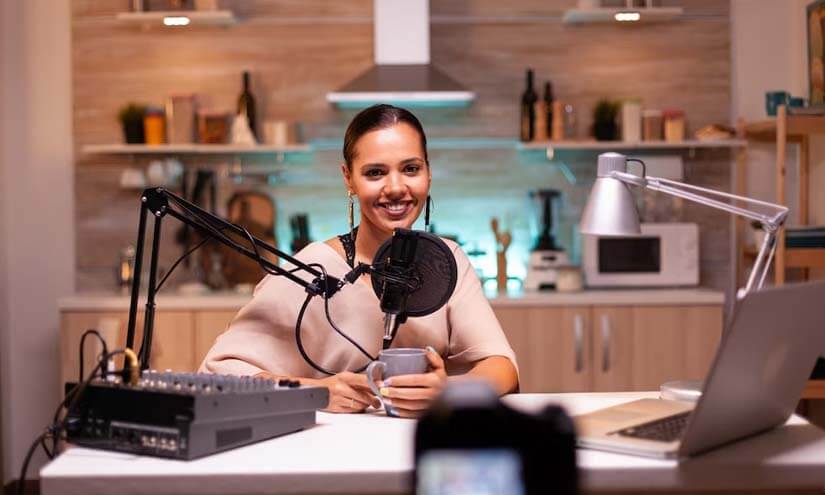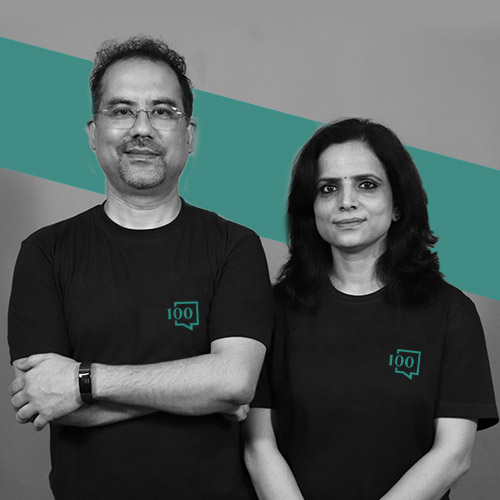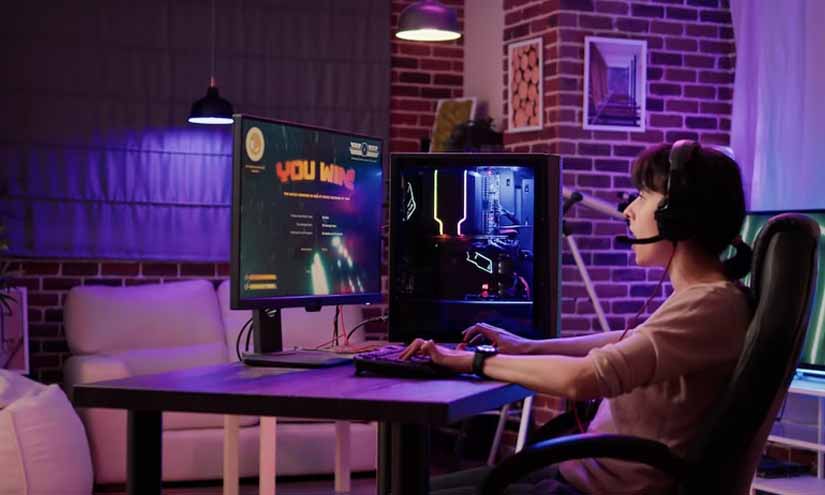Do you have these questions in your mind?
- How to start a Home Recording Studio Business?
- How much does it cost to start a Home Recording Studio Business?
- What qualifications do I need to start a Home Recording Studio Business?
- How much does a Home Recording Studio make?
In this article, you will find answers to all your questions. So please grab a cup of coffee, and let’s get started.
Table of Contents
Why start a Home Recording Studio business?
So you want to start a Home Recording Studio? You’re not alone! An audio recording has taken off recently, and with good reason. It’s a great way to connect with an audience, build a following, and share your passion for different topics.
A Home Recording Studio business provides recording services to independent music artists, bands, and other audio productions in a small, home-based studio.
This blog post will explore the basics of setting up an audio recording home studio. From equipment to acoustics and more, read on for everything you need to get started on your podcasting journey.
Market Insight: There are 20,663 Audio Production Studios businesses in the US as of 2022, an increase of 3.1% from 2021.
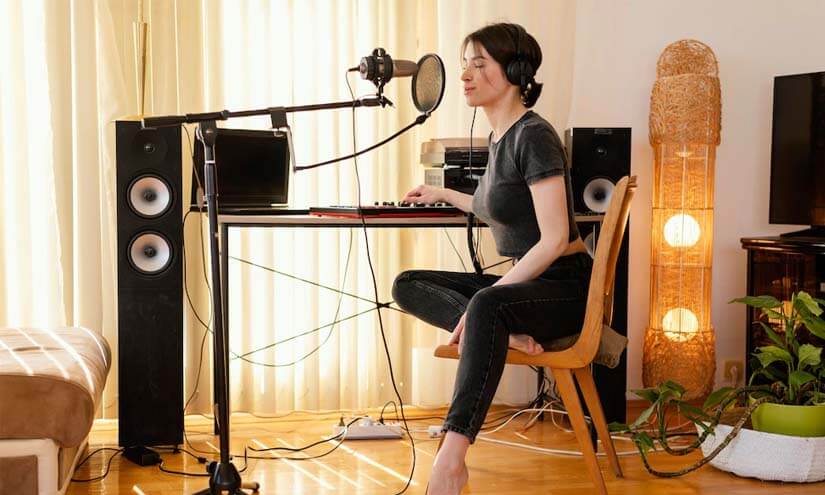
Types of Recording Studio Business Models
A home studio is a small business that provides audio recording services for producers, musicians, voiceover artists, and other audio professionals.
It can range from a small setup in a home to a full-fledged studio. Types of audio recording services typically offered by home studio businesses include:
1. Music Recording:
This type of recording involves the capturing and mixing of music and the editing and mastering of the final product.
2. Voiceover Recording:
This type of recording involves capturing a voiceover artist’s performance in commercials, movies, video games, and more.
3. Podcast Recording:
This type of recording involves capturing a podcast, typically a series of audio recordings released over the internet.
4. Sound Design:
This type of recording involves the creation of audio landscapes, sound effects, and other audio elements to create a unique and immersive experience.
5. Audio Post-Production:
This recording involves mixing and mastering audio to create a polished, professional-sounding product.
6. Audio for Video:
This type of recording involves capturing audio for video projects such as films, documentaries, and commercials.
7. Demo Recording:
This type of recording involves capturing a short audio clip to showcase an artist’s talents.
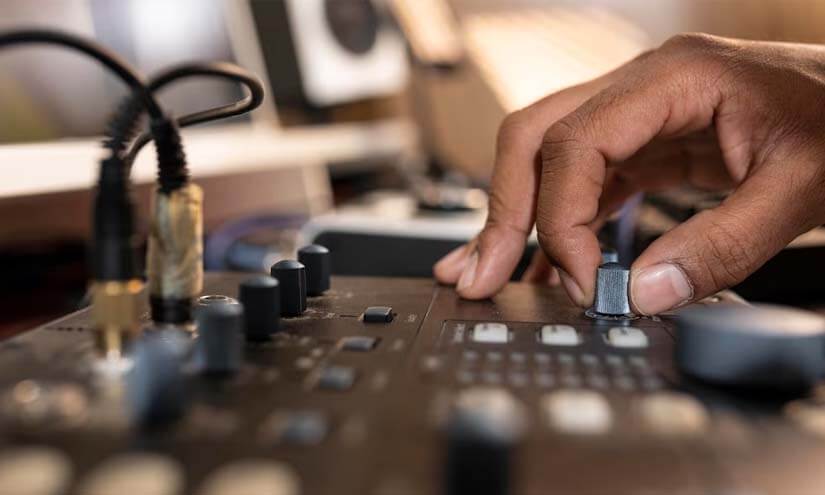
Pros and Cons of Home Recording Studio
Pros of a Home Recording Studio
- Simple Business Model
- High Margins
- Flexibility
- Convenience
- Versatility
- Quality
- Privacy
- Good learning curve
Cons of a Home Recording Studio
- Repetitive Work
- Customer Trust is severely needed
- Minimal Physical Activity
- Limited Space
- Distractions
- Lack of Experience
- Equipment Limitations
- Isolation
- A good knowledge of acoustics is needed
- Moderate to high startup costs may needed depending on your setup.
The following are the six main elements when planning for your own Home Recording Studio Business:
1. Calculate the startup costs for the studio.
2. Write a business strategy.
3. Purchase all necessary equipment for your business.
4. Requirements of law.
5. Make financial projections.

Investment required to start a Home Recording Studio Business
A Home recording studio starting cost can be anywhere from $500 to $20,000, depending on how technologically sound your recording studio is.
The ongoing expenses for an audio recording home studio business will depend on the size and complexity of the studio.
- Depending on the size and type of equipment used, gas, water, and electricity can range from $50 to $150 a month.
- Depending on the type of equipment needed, costs can range from $2,000 to $10,000. This cost can also be reduced by renting or leasing equipment.
- Depending on the type of software needed, costs can range from $50 to $1,000 a month.
- If a professional engineer is required, costs can range from $50 to $150 an hour.
- Miscellaneous expenses, such as internet, phone, etc., can range from $50 to $200 monthly.
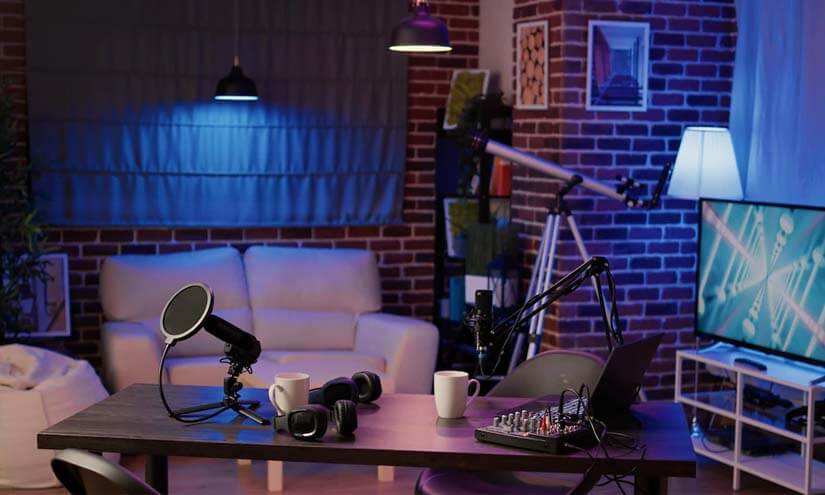
How much does the Home Recording Studio Business make?
In a Home recording studio business, your annual pay as a business varies depending on the services you provide, the complexity of the project, and other factors.
How Home Recording studio make money?
Audio recording home studios make money by providing their services to clients in need of music production, voice-over work, audio mastering, sound engineering, and other audio-related tasks.
These services can be provided to clients on a freelance basis, as part of a larger production team, or even as part of a larger business model. Home studios also make money by selling beats, sound libraries, and other audio production-related products.
Additionally, home studios may make money by offering their services as a way to teach others how to produce their own audio projects.
Looking for LOGO Design + Branding?
iMedia Ad Agency is an award wining Logo Design Company run by Sushant & Vijaya, offering professional logo designs for Start-ups / SMEs / Home Businesses Owners.
WHAT ALL YOU WILL GET IN YOUR LOGO PACKAGE?
- Full ownership of final Logo remains with the client
- 100% original logo artwork
- No internet copy-paste work
- Original sketch supplied
- Super High resolution Vector file formats
- Free 1 month logo backup support
- Telephone, chat, skype & email support
Get all Business Launch Solutions under one roof Logo, Corporate Identity, Invite, Stationary, Packaging, Broucher, Product Display, Web Design, Business Blog, Shopify Store, Startup Pitch Deck, Google SEO, Product Reviews, Business Articles, and Social Media Management.
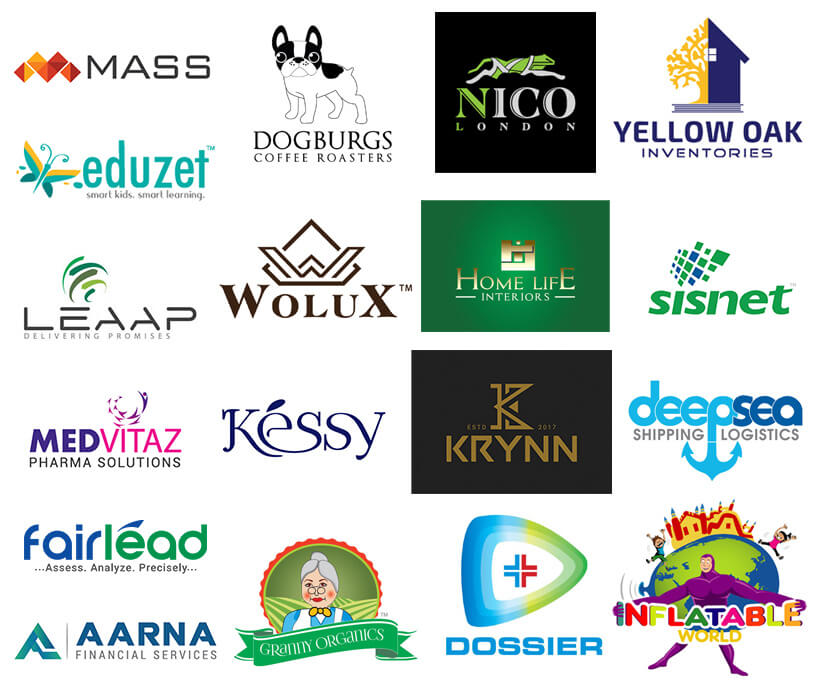
Tips when starting a Home Recording Studio
Here are some tips for starting your very own Home Recording Studio:
1. Invest in quality equipment:
Start with the essentials, such as a computer, audio interface, microphone, headphones, etc.
2. Learn the basics of audio production:
Learn the basics of audio production, such as microphone techniques, mixing, and mastering.
3. Create a dedicated space:
Set up a dedicated space for your recording studio that is quiet, comfortable, and has good acoustics.
4. Soundproofing:
Soundproof your space to reduce unwanted noise and improve the sound quality of your recordings.
5. Learn how to use your equipment:
Take the time to learn how to use your equipment correctly, and practice using it to become proficient.
6. Build a network:
Connect with other musicians, audio engineers, and industry professionals.
7. Offer a range of services:
Offer services such as recording, mixing, mastering, and production to attract a broader range of clients.
8. Keep your equipment up-to-date:
Keep your equipment and software up-to-date to offer your clients the latest and greatest technology.
As the business grows, you may want to turn your studio into a more professional way and in a elegant setting. When it do comes to it, some tips that may help are:
1. As your business grows, consider moving to a larger commercial space.
2. Invest in professional acoustic treatment and soundproofing materials.
3. A professional-looking control room comfortable for you and your clients.
4. Staff such as engineers, producers, and interns to help.
5. Get industry certifications such as Pro Tools to demonstrate your expertise.
6. Make your rates competitive like other professional studios in your area.
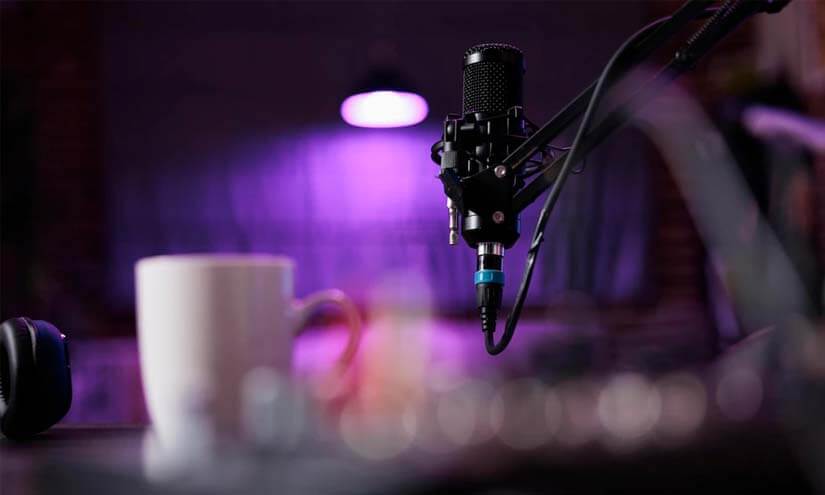
Checklist equipment for a Home Recording Studio
The essential equipment for a Home Recording Studio Business, along with a budget and calculation, is as follows:
1. Computer:
A quality computer is essential for audio recording, ranging from $500 to $3000.
2. Digital Audio Workstation (DAW):
This software will be used to record and mix audio and is usually purchased separately from the computer. Prices range from $50 – $500.
3. Audio Interface:
This is the device that connects the computer to the audio recording equipment. Prices range from $100 – $2000.
4. Microphones:
The type of microphone used will depend on what kind of recording is being done, and prices range from $50 – $500.
5. Headphones:
Quality headphones are essential for monitoring audio. Prices range from $50 – $300.
6. Monitors:
Good speakers are essential for accurate audio monitoring. Prices range from $100 – $1000.
7. Cables:
Cables are used to connect all the pieces of equipment together. Prices range from $10 – $50.
8. Other accessories:
Depending on the recording type and equipment used, other accessories may be needed, such as stands, shock mounts, etc. Prices for these accessories range from $10 – $200.
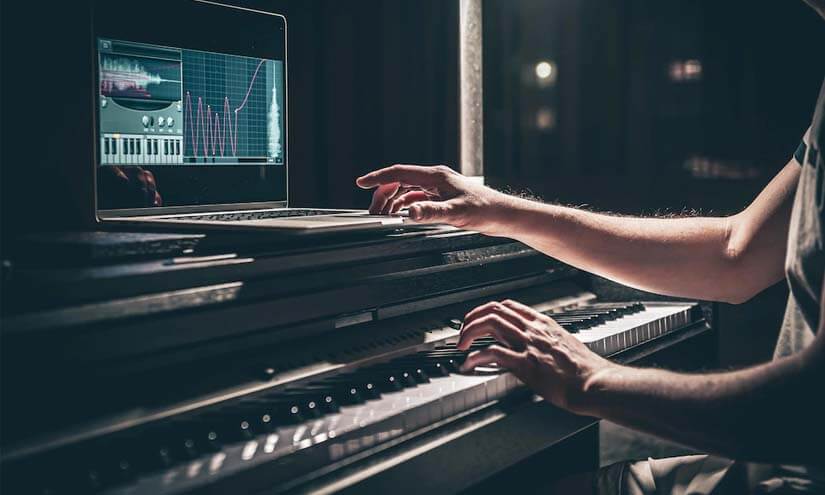
Skills and Expertise needed to start your own home recording studio
While starting your own home recording studio may seem exciting and fun, to make your business profitable and your client’s lists longer, you need to have the skills and expertise that your clients expect.
Some of the skills you need for your Home recording studio are as follows:
1. Sound Engineering:
Knowledge of the fundamentals of sound engineerings, such as microphone placement and mixing techniques.
2. Studio Equipment:
Knowledge of studio equipment, including microphones, preamps, compressors, audio interfaces, and digital audio workstations.
3. Music Production:
Knowledge of music production techniques, such as sequencing, sampling, and looping.
4. Music Composition:
Ability to compose and arrange music for recordings.
5. Business Skills:
Understanding basic business principles, such as marketing, customer service, and financial management.
6. Technical Knowledge:
Knowledge of computer systems, such as hardware and software, and audio recording and editing software.
7. Networking:
Ability to market and promote your business by building relationships with other studios and industry professionals
Some of the top recording studios in the UK & the US are:
- Abbey Road Studios (UK)
- AIR Studios (UK)
- The Pool (UK)
- Electric Lady Studios (USA)
- The Sound Factory (USA)
Here is a list of the people you need to hire to run for your Home Recording Studio business:
1. Recording Engineer
2. Mixing Engineer
3. Mastering Engineer
4. Music Producer
5. Session Musicians
6. Interns or Assistant
7. Video Production
8. Social Media Manager
9. Sales and Marketing professional
10. Business Manager

FREE DOWNLOAD
Launch your Money Blog
Build a 24/7 money machine that you can create and grow from anywhere in the world you are…
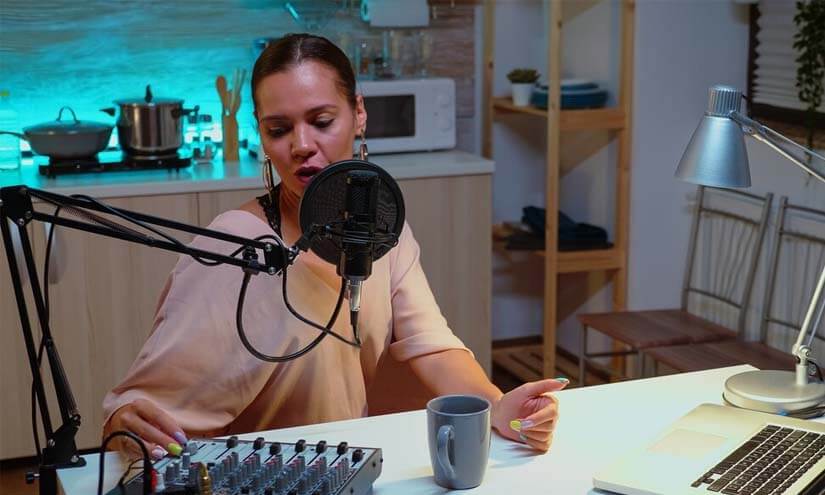
Service List for a Home Recording Studio Business
As a Home Recording Studio, you can offer a variety of services to your clients, such as:
- Recording vocals, instruments, and bands professionally to capture high-quality audio.
- Mixing and balancing the different tracks of a recording creates a cohesive final mix.
- Polishing audio recordings for release, including adjusting volume, EQ, and dynamic range.
- Guiding the creative direction of a recording project and helping the artist to achieve their vision.
- Providing services to help artists write and compose music.
- Services such as sound design, ADR, and foley to enhance audio for film and video projects.
- Recording voice-overs for commercials, videos, and other types of media.
- Recording sessions with artists remotely via the internet or sending your recording equipment to the artist’s location.
- Editing and arranging music to suit specific needs, such as film or video game music.
- Restoring and preserving audio recordings of historical significance.
Service rate card for a Home Recording Studio
As per the services you decide to offer, you need to set your prices accordingly:
Most studios charge as follows:
- Per Hour
- Per Project
- By Percentage
1. Per Hour:
Based on your experience, the project’s complexity, the type of services, and the popularity of your client, you can charge your services hourly.
2. Per project:
You can also charge based on the project that you’re working on. Again, it’s essential to accurately calculate your prices based on the project’s complexity.
3. By Percentage:
You can also charge based on a certain percentage of the profits the project will incur. However, when starting out, we recommend something other than this type of pricing as the clients coming to you may not get you the money you are hoping for.
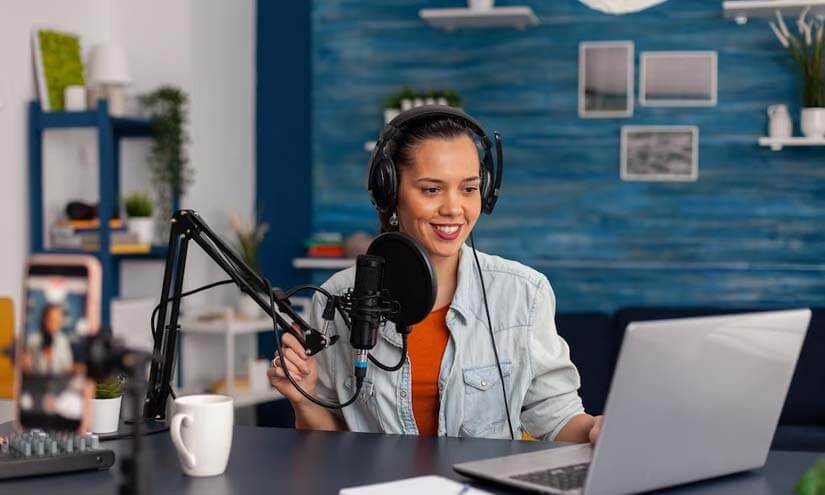
Business Growth Tips for a Home Recording Studio
For a home recording studio, some ways you can grow your business are:
1. Offer a wide range of services:
In addition to recording, mixing, and mastering, consider offering services such as composing, producing, and post-production for film and video.
2. Build a solid online presence:
A professional website and active social media accounts can attract new clients and showcase your services and past work.
3. Network and collaborate:
Attend local music events, join industry groups and forums, and collaborate with other professionals in the field to expand your network and gain exposure.
4. Focus on customer service:
Providing excellent customer service will help ensure that clients leave satisfied and are more likely to recommend your services to others.
5. Keep your equipment and software up-to-date:
Investing in the latest technology will help you stay competitive and attract clients looking for high-quality recordings.
6. Discounts:
Offer Special Promotions and discounts for new customers.
7. Diversify your client base:
Don’t rely on a single genre or type of client. Instead, try to work with various artists and clients to help ensure a steady stream of work.
8. Be open to feedback and be willing to learn:
Be open to client feedback, and always be willing to learn new techniques and technologies to improve your skills and stay competitive.
Conclusion
Yes, a Home Recording Studio Business is a good idea; the profits are rewarding. However, you need to analyze your capabilities and limitations as there is no restriction to growing.
Remember to equip all the necessary equipment for your studio and provide customers with many options for your services.
Connect with other artists and producers to gain more knowledge about this business, and if you are struggling with anything, try to keep going but rather learn from the experience and just go for it!
Happy Recording!

Want to Save Time in your Business Launch?
- How to Create a Business Plan
- What is Market Research, USP, Niche & Positioning
- How to find a suitable name for your business
- How to create your brand image (Logo + Branding)
- How to Register Your Business
- How to Register for Taxes
- How to get Licenses / Permits
- How to Open a Business Bank Account
- How to Get Business Insurance
- Which Payment Processing Terminal (POS) to buy
- How to get Funds for your Business
- How to do Sales & Marketing – Offline & Online
- Why have a Website / Blog / Social Media
- How to build & train your Dream Team
- How to provide Excellent Customer Service
- Buying an Old Business Vs Franchisee Vs Own Brand from Scratch
Handpicked inspirational Youtube videos for you
Private Studio Tour – One of the UK’s best equipped studios – YT Channel ‘Record Production’
EPIC HOME STUDIO Setup 2023 | Warren David (studio tour) – YT Channel ‘Andrew Masters’
I Built an EPIC Home Music Studio Under $350! – YT Channel ‘Edward Smith’
A. The size of the recording studio business can vary greatly depending on factors such as location, services offered, and target market. However, the global music recording studio market size was valued at USD 3.2 billion in 2020 and is expected to expand at a compound annual growth rate (CAGR) of 7.8% from 2021 to 2028.
A. A home recording studio business can be profitable if it is run effectively and efficiently, with a good understanding of the music industry, audio production and recording techniques, equipment, and software, and by keeping overhead costs low. However, profitability also depends on factors such as location, competition, pricing, and marketing efforts.
A. Standard Operating Procedure (SOP) headings for a home recording studio business may include:
- Scheduling and booking sessions
- Setting up and preparing the studio
- Recording and monitoring sessions
- Post-production
- Delivering the final product
- Maintenance and Upkeep
- Customer Service
- Legal and financial.
A. The top 5 recording studios in the UK include:
- Abbey Road Studios
- AIR Studios
- Metropolis Studios
- The Pool
- Real World Studios
A. The top 5 recording studios in the US include:
- Electric Lady Studios
- The Sound Factory
- Sound City Studios
- Ocean Way Recording
- The Hit Factory



